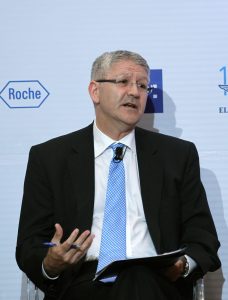Mexico City, Jul 24 (EFE).- The plan for attacking cancer in Mexico must include turning out more oncologists from medical schools, better cooperation among institutions and raising public awareness about the need for regular checkups, experts agreed on Monday.

“Without a doubt, the ability of any national health care system depends on the production of human resources,’ said Dr. German Enrique Fajardo at the forum entitled “Cancer: Challenges in Mexico and Latin America” organized by Agencia EFE, Spain’s international news agency, and the daily El Universal.
“We have a very small production of medical experts in oncology,” said Fajardo, adding that there are 1,700 oncologists in Mexico with 44 new cancer surgeons graduating each year.
In addition, just 10 percent of the country’s 160 medical schools “have oncology as a subject in their training (program),” he added.
The problem, moreover, lies not only in the number of available oncologists but also in their distribution.
The solution is to gradually distribute qualified personnel around the country, something that – Fajardo said – is not easy.
Another of the speakers, Roman Rosales, said that members of the public must also “go to the doctor in a timely way.”
Dr. Pedro Mario Escudero agreed that “preventive medicine” is vital for dealing with cancer, which each year takes 80,000 lives in Mexico, along with educating the public on health matters.
Escudero said that policies must focus on the “most frequent” tumors, and “we must ask ourselves what we have to do … to get better results.”
The experts also called for ameliorating – via better cooperation among institutions – the negative effects of a fragmented health care system.
“The interchange of … planned services can help resolve a large number of problems,” Fajardo said.
Dr. Abelardo Meneses said that after the implementation of the national cancer registry, the next step will be to implement “the comprehensive program for prevention and control of cancer, which is necessary (in Mexico) to reduce the weight and burden of the disease.”
There is still a “very important gap between (current action) and what remains to be done,” given that a 66 percent increase in cancer cases is expected by 2030, Escudero said.
